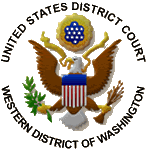Related Research Articles
Prima facie is a Latin expression meaning at first sight or based on first impression. The literal translation would be 'at first face' or 'at first appearance', from the feminine forms of primus ('first') and facies ('face'), both in the ablative case. In modern, colloquial and conversational English, a common translation would be "on the face of it".

John Doe (male) and Jane Doe (female) are multiple-use placeholder names that are used when the true name of a person is unknown or is being intentionally concealed. In the context of law enforcement in the United States, such names are often used to refer to a corpse whose identity is unknown or unconfirmed. These names are also often used to refer to a hypothetical "everyman" in other contexts, in a manner similar to John Q. Public or "Joe Public". There are many variants to the above names, including John Roe, Richard Roe, Jane Roe, Baby Doe, and Janie Doe or Johnny Doe.
In English and English-derived legal systems, an Anton Piller order is a court order that provides the right to search premises and seize evidence without prior warning. This is intended to prevent the destruction of relevant evidence, particularly in cases of alleged trademark, copyright or patent infringements.
Byrne v Boadle is an English tort law case that first applied the doctrine of res ipsa loquitur.

Apple v. Does was a high-profile legal proceeding in United States of America notable for bringing into question the breadth of the shield law protecting journalists from being forced to reveal their sources, and whether that law applied to online news journalists writing about corporate trade secrets. The case was also notable for the large collection of amici curiae who joined in the matter.

The Supreme Court of Delaware is the sole appellate court in the United States state of Delaware. Because Delaware is a popular haven for corporations, the Court has developed a worldwide reputation as a respected source of corporate law decisions, particularly in the area of mergers and acquisitions.

Martin v. Herzog, Ct. of App. of N.Y., 228 N Y. 164, 126 N.E. 814 (1920), was a New York Court of Appeals case.
A Doe subpoena is a subpoena that seeks the identity of an unknown defendant to a lawsuit. Most jurisdictions permit a plaintiff who does not yet know a defendant's identity to file suit against John Doe and then use the tools of the discovery process to seek the defendant's true name. A Doe subpoena is often served on an online service provider or ISP for the purpose of identifying the author of an anonymous post.
Disparate treatment is one kind of unlawful discrimination in US labor law. In the United States, it means unequal behavior toward someone because of a protected characteristic under Title VII of the United States Civil Rights Act. This contrasts with disparate impact, where an employer applies a neutral rule that treats everyone equally in form, but has a disadvantageous effect on some people of a protected characteristic compared to others.

Doe v. 2themart.com Inc., 140 F. Supp. 2d 1088 (2001), was a federal case decided by United States District Court for the Western District of Washington, on the issue of an individual's First Amendment right to speak anonymously on the Internet and a private party's right to disclose the identity of the anonymous Internet user by enforcing a civil subpoena. The court held that 2TheMart.com (TMRT) failed to show that the identities of these anonymous Internet users were directly and materially relevant to the core defense in the litigation, and thus the subpoena should not be issued. Therefore, Doe's motion to quash the subpoena was granted.
Mobilisa v. Doe was a lawsuit filed in 2005 by Mobilisa Inc., a Washington-based company that provides wireless and mobile communications to government and military clients. The case against John Doe, the anonymous sender of an email using the service "The Suggestion Box". The case is notable regarding the legal question of what standard should govern requests for discovery of the identity of an anonymous Internet speaker whose speech allegedly violated a plaintiff's rights. While the court originally issued a subpoena requiring The Suggestion Box to disclose the identity of the e-mail's sender, it later vacated this order when The Suggestion Box objected in December 2005.
In Milgram v. Orbitz Worldwide, LLC, the New Jersey Superior Court held that online ticket resellers qualified for immunity under Section 230 of the Communications Decency Act (CDA), and that such immunity preempted a state law consumer fraud statute. The opinion clarified the court's test for determining whether a defendant is acting as a publisher, the applicability of the CDA to e-commerce sites, and the extent of control that an online intermediary may exercise over user content without becoming an "information content provider" under the CDA. The opinion was hailed by one observer as a "rare defeat for a consumer protection agency" and the "biggest defense win of the year" in CDA § 230 litigation.

Doe v. Cahill, 884 A.2d 451, is a significant case in the realm of anonymous internet speech and the First Amendment. While similar issues had been tackled involving criticism of a publicly traded company, the case marks the first time the Delaware Supreme Court addressed the issue of anonymous internet speech and defamation "in the context of a case involving political criticism of a public figure."

Pacific Century International, Ltd. v. Does 1-101, No. 4:11-cv-02533, is a court case where Pacific Century International requested to subpoena the names and identities of 101 BitTorrent users whose IP Addresses were tied to downloading one of their copyrighted works. The resulting court decision permitted Pacific Century International to subpoena the identity of Doe 1, but dismissed claims against Does 2-101 for failure to demonstrate that the Does had operated as a single group while distributing the torrent, preventing each users' subpoena request from being enjoined into a single court filing. This case set a precedent for disallowing filings against large groups of IP addresses used to distribute copyrighted works over peer-to-peer networks.

Anonymous Online Speakers v. United States District Court for the District of Nevada, 611 F.3d 653 (2010), is a decision by the Ninth Circuit lowering the standard a plaintiff must meet to compel identification of anonymous posters on the Internet.

Krinsky v. Doe 6, was a decision by the California Court of Appeal, Sixth District, addressing the evidentiary standard required of plaintiffs seeking the identification of anonymous Internet posters. The case addressed defamation and the right to anonymous speech on the Internet. Plaintiff Lisa Krinsky sued Doe 6, an anonymous poster to Yahoo! message boards, for defamation. Krinsky served a subpoena to Yahoo! for Doe 6's identity. Doe 6 filed a motion to quash the subpoena, "contending that he had a First Amendment right to speak anonymously on the Internet."
Garden State Equality v. Dow, 82 A. 3d 336 is a New Jersey Superior Court case holding that New Jersey's marriage laws violated the rights of same-sex couples to equal protection of the law under the New Jersey State Constitution. The ruling was issued on September 27, 2013. The Superior Court and the Superior Court, Appellate Division refused the State's request for a stay of the trial court's order, and the New Jersey Supreme Court refused to do so on a 7-0 vote. The ruling took effect on October 21, 2013. On the same day, New Jersey Governor Chris Christie dropped the State's plans to appeal, ending the denial of marriage rights to same-sex couples in New Jersey.
Reeves v. Sanderson Plumbing Products, Inc., 530 U.S. 133 (2000), was a case before the United States Supreme Court concerning age discrimination in employment.

Hard Drive Productions, Inc. v. Does 1–1,495, Civil Action No. 11-1741 (JDB/JMF), was a United States District Court for the District of Columbia case in which the court held that anonymous users of the peer-to-peer file sharing service BitTorrent could not remain anonymous after charges of copyright infringement were brought against them. The court ultimately dismissed the case, but the identities of defendants were publicly exposed.

Doe ex. rel. Tarlow v. District of Columbia, 489 F.3d 376, is a unanimous decision of the United States Court of Appeals for the District of Columbia Circuit, written by Circuit Judge Brett Kavanaugh, in which the Court upheld a 2003 District of Columbia statute that stated the conditions for authorizing a non-emergency surgical procedure on a mentally incompetent person. This case developed out of an appeal to a district court decision that was brought on behalf of a mentally incompetent patient who was subjected to an abortion without her consent and another patient who was subjected to an eye surgery without the patient's consent. Under the appellate court's interpretation of the statute, a court located in the District of Columbia must apply the "best interest of the patient" standard to a person who was never competent, and the court must apply the "known wishes of the patient" standard to a person who was once competent. The appellate decision was remanded to the District Court.
References
- 1 2 Dendrite International, Inc. v. Doe No. 3, 342 N.J. Super. 134, 775 A.2d 756 (App. Div. 2001).
- ↑ 170 P.3d 712 (pdf) Archived March 13, 2009, at the Wayback Machine (Ariz. 2007). Retrieved on 2011-03-01.
- ↑ Gallagher, Mary Pat. "N.J. Suit Could Be Test Case for Anonymous Web Posts", New Jersey Law Journal, February 26, 2007.
- ↑ Court of Appeals of Maryland, Feb. 27, 2009, No. 63 (pdf). Retrieved on 2011-03-01.
- 1 2 Miller, Jason. Who's Exposing John Doe Journal of Technology Law & Policy, Vol. 13, No. 1, 2008
- ↑ Business Wire. Dendrite's Shareholders Approve Acquisition by Cegedim. Retrieved on 2011-03-01.
- 1 2 3 4 5 Bartlett, Michael, Court Upholds Anonymous Net Posting Decision, USA Today. Retrieved on 2009-03-15.
- ↑ Saitz, Greg. "Walking a Fine Line on Cyber Rights." New Jersey Star-Ledger. Retrieved on 2011-03-01.
- ↑ Dendrite International v. Does 1 through 4
- ↑ Techdirt: Indiana Court Says Anonymous Commenters Deserve High Standard Before Being Exposed, But Aren't Necessarily Protected By Shield Laws